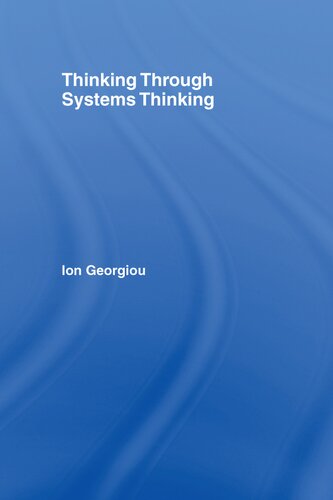

Most ebook files are in PDF format, so you can easily read them using various software such as Foxit Reader or directly on the Google Chrome browser.
Some ebook files are released by publishers in other formats such as .awz, .mobi, .epub, .fb2, etc. You may need to install specific software to read these formats on mobile/PC, such as Calibre.
Please read the tutorial at this link: https://ebookbell.com/faq
We offer FREE conversion to the popular formats you request; however, this may take some time. Therefore, right after payment, please email us, and we will try to provide the service as quickly as possible.
For some exceptional file formats or broken links (if any), please refrain from opening any disputes. Instead, email us first, and we will try to assist within a maximum of 6 hours.
EbookBell Team

5.0
48 reviewsSystemicity is receiving wider attention thanks to its evident paradox. On the one hand, it occurs as a problem with complex symptoms. On the other, it is sought after as an approach for dealing with the non-linear reality of the world. At once problem and prize, systemicity continues to confound. This book details the mechanics of this paradox as they arise from human epistemological engagement with the world.
Guided by an original analysis of the fundamental idea of emergent property, Thinking Through Systems Thinking uncovers the distinct significance, but also incompleteness, of the systems approach as a theory of human epistemological engagement. The incompleteness is treated through a non-eclectic interdisciplinary investigation which meets ten distinctly developed criteria required of any potential interdisciplinary partner to systems thinking. There results a theory of knowledge – an epistemology - which is systemic in both senses of the term: it belongs to the general systems movement, and it is systemically structured. The systems movement is thus offered a distinct epistemological voice which can compete on equal ground with other philosophical/epistemological positions. In true systemic fashion, this theory of knowledge also offers methodological, ethical, and existential implications.